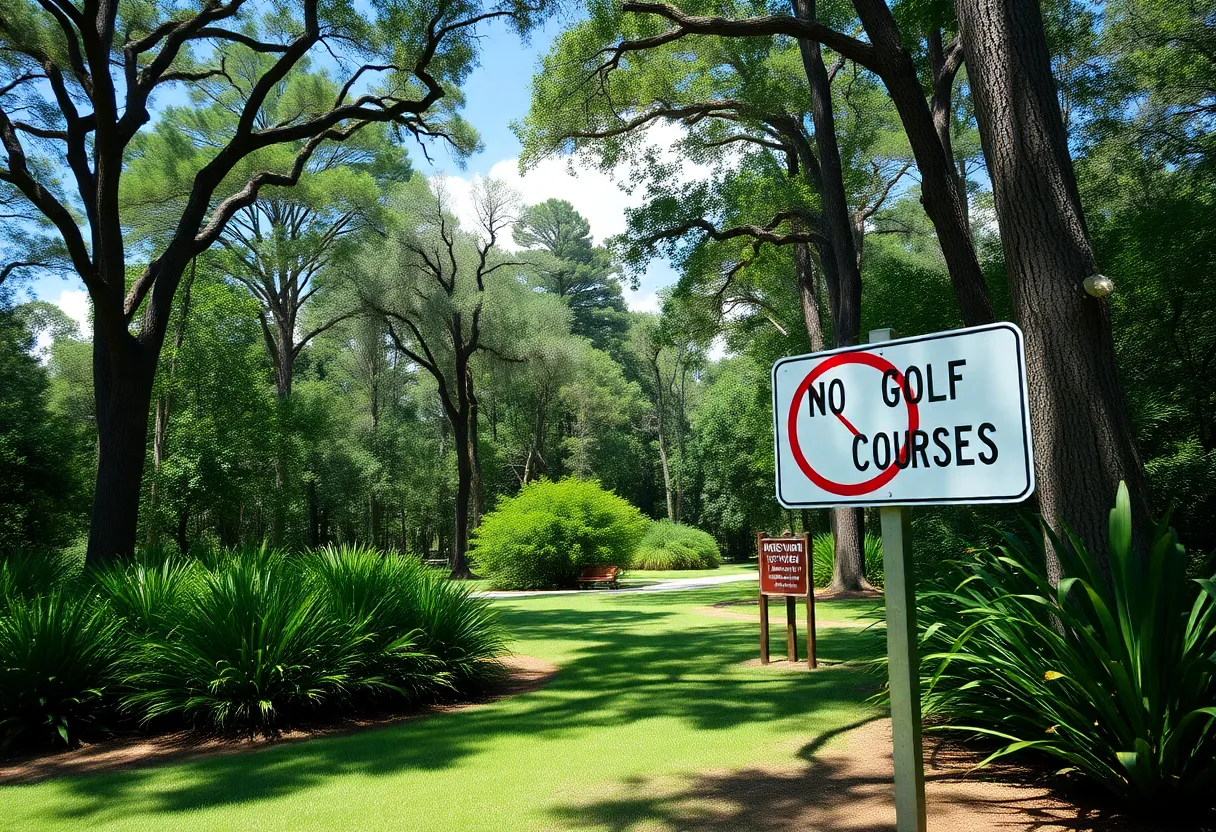

State parks in Florida aim to preserve nature against proposed golf courses.
Article Sponsored by:
FIND YOUR NEXT FLORIDA GOLF DESTINATION REGION
Our mission since 1996, to promote Florida as the world’s leading golf destination.
Plan your next great round in Florida. With more than 1,100 courses across the state offering everything from challenging designs with spectacular views to more accommodating layouts with wide-open fairways, a great game of golf is always just a drive away.
In a move that’s stirring up conversations across the Sunshine State, a controversial proposal to build golf courses on federally protected state park land has encountered an enormous snag. The plan, famously dubbed the “Great Outdoors Initiative,” was introduced by the Florida Department of Environmental Protection back in August, but it’s now facing serious opposition that has caused it to stall.
Under the original initiative, parks like Jonathan Dickinson State Park would have been transformed with two 18-hole and a nine-hole golf course. Meanwhile, Miami-Dade’s Oleta River State Park and several others would see additions like pickleball courts and disc golf courses. Even lodges with the capacity for 350 guests were eyed for construction in parks such as Anastasia State Park in St. Johns County. It all sounds pretty appealing to some, right? But, hang on—here’s where things got sticky.
The proposal came to light after being leaked to environmental activists, triggering a massive uproar. The Tuskegee Dunes Foundation, the brains behind this initiative, claimed that the golf courses would tell “the inspirational story of the Tuskegee Airmen,” the African American military pilots from World War II. However, the mixed public response prompted Florida Governor Ron DeSantis to act. He called the initiative “half-baked” and decided to hit the brakes.
Fast forward to this week. In the wake of widespread backlash, Republican State Senator Gayle Harrell has jumped into action by filing the State Park Preservation Act. This bill aims to stop any plans for golf courses, tennis courts, and various sports facilities from being built in state parks. Harrell’s proposed legislation, set for discussion in the upcoming 2025 session, aims to shift management priorities in state parks towards preserving nature and offering passive recreational activities like hiking and canoeing.
Many are backing Harrell’s bill, including State Senate President Kathleen Passidomo, who criticized the idea of redesignating park areas for active uses. “We have worked hard to improve our state parks with the goal of protecting and preserving natural habitats,” she said. “Golf courses and hotels do not align with the peaceful enjoyment of nature.” Even Florida Chief Financial Officer Jimmy Patronis weighed in, calling it a “slippery slope” while emphasizing the importance of preserving public lands.
Community sentiment runs deep on this issue. A petition against the golf plans quickly garnered almost 100,000 signatures. Locals pointed out the abundance of golf courses already in the area, claiming, “There are already at least 47 golf courses between Stuart and Jupiter.” The frustration was palpable as demand for nature over development became a rallying cry.
While DeSantis had paused the initiative, he didn’t appear to be too concerned about the backlash, dismissing it as an exaggerated narrative crafted by critics. “If people don’t want improvements, then don’t do it,” he stated, which struck a nerve with many who see ecological preservation as non-negotiable.
As Harrell’s bill moves forward, it remains to be seen how the legislature will respond. If passed, the Act would take effect in July 2025, ensuring that Florida’s state parks remain untouched by commercial endeavors, allowing for nature to thrive for generations to come. For now, it seems the future of the state’s beloved parks hangs in the balance—a fascinating tug-of-war between recreation and preservation.

Our mission since 1996, to promote Florida as the world’s leading golf destination.
News Summary Westpac, Australia's second-largest mortgage lender, reported a decline in first-half profit, causing a…
News Summary In a landmark decision, the SpaceX facility in South Texas has officially transformed…
News Summary In a controversial execution, South Carolina has carried out the death penalty on…
News Summary Quarterback LaNorris Sellers from South Carolina is gaining significant attention as a potential…
News Summary A significant winter storm is predicted to bring potential snowfall to various regions…
News Summary Authorities are investigating the death of Larisha Thompson, a 40-year-old woman found shot…